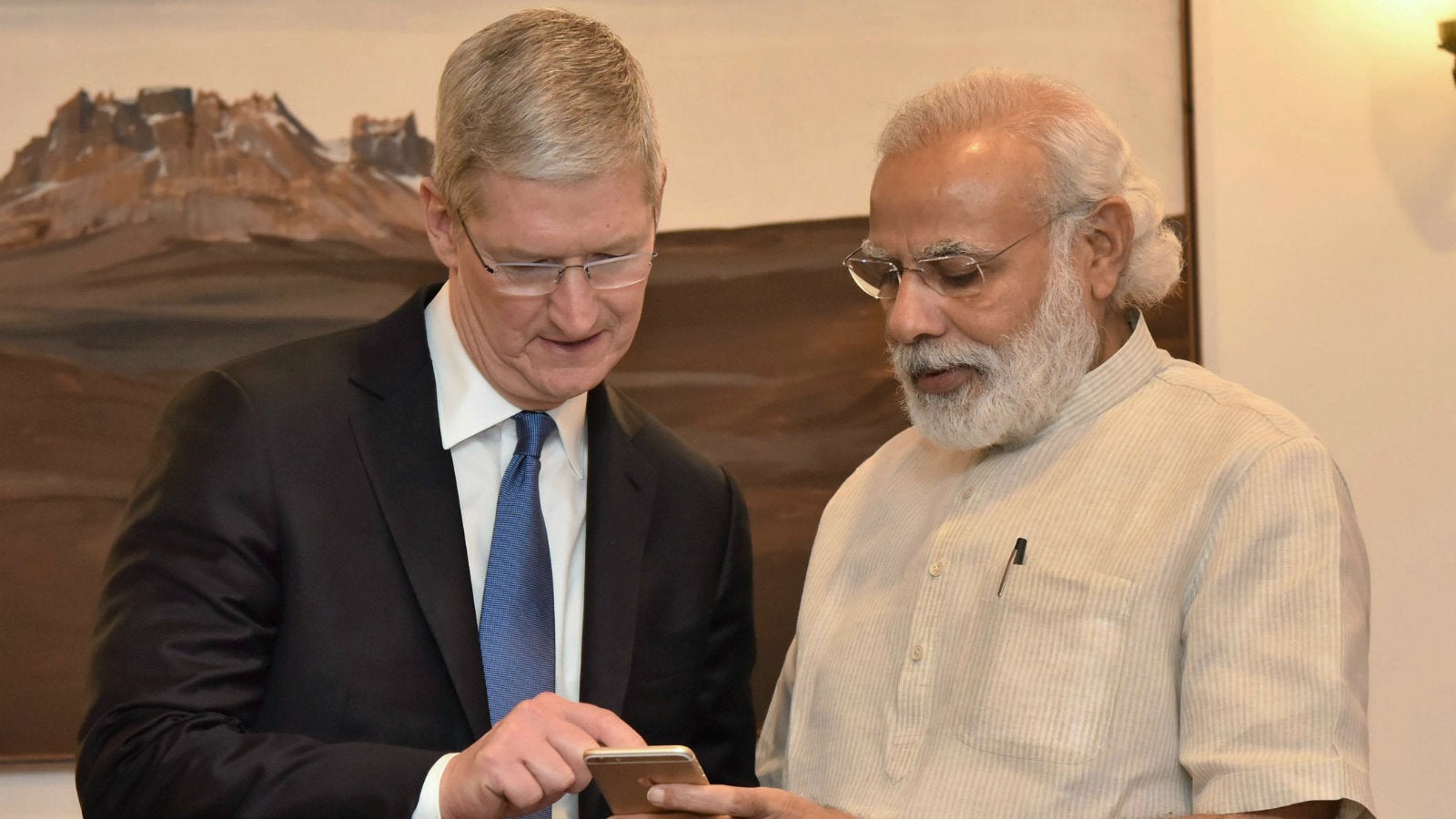Apple can finally open retail stores in India
The Indian government is relaxing some of its notoriously stringent rules on foreign investment, meaning that Apple—after more than a decade of having to depend on resellers—will finally be able to open retail stores in India.


The Indian government is relaxing some of its notoriously stringent rules on foreign investment, meaning that Apple—after more than a decade of having to depend on resellers—will finally be able to open retail stores in India.
The hurdle up until now has been a requirement that retailers locally source at least 30% of the goods sold in company-owned stores. But today (June 20), India’s government announced a three-year exemption for foreign entities—and companies that provide “cutting edge” technology will enjoy an additional five years of a “relaxed sourcing regime.”
The changes to the foreign direct investment (FDI) rules are meant to “provide ease of doing business in the country leading to larger FDI inflows contributing to growth of investment, incomes and employment,” the government said in a statement.
Apple is one of the biggest beneficiaries of the change in policy. The Cupertino, California-based company has been trying to open direct stores in India for some time now. But it could not meet the mandatory 30% local sourcing norm since India currently does not have the vendors that the company needs. The Indian government has turned down Apple’s request for opening direct stores at least once.
India remains a tiny contributor to Apple’s revenue, accounting for just 1% of iPhone sales globally, but it’s an increasingly important market for the company, especially as Apple’s growth in China slows. In April, Apple posted its first quarterly sales drop since 2003, mostly due to unimpressive performance in China. However, in India—the world’s second-largest smartphone market, largely dominated by South Korean smartphone brand Samsung and local player Micromax—Apple saw a whopping 56% increase in sales.
“I view India as where China was maybe seven to 10 years ago,” Apple CEO Tim Cook said at the time.
Last month, Cook made his maiden visit to India, where he met with prime minister Narendra Modi, offered prayers at a high-profile temple in Mumbai, took in a cricket match, and partied with Bollywood actors. ”India’s policy change is perhaps an outcome of Cook’s trip to India,” said Vishal Tripathi, a research director at Gartner.
What next?
With its own stores in India, Apple would have more control over marketing and over the buying process, as well as an outlet for offering after-sale and repair services to Indian buyers.
The first few stores are likely to crop up in metropolitan areas where the company already has a fan following, said Tarun Pathak, a senior analyst at market research firm Counterpoint. “This will be a first small step of a long-term strategy for Apple in India,” he said.
For its stores to succeed, Apple will have to ensure prices of its devices in the stores are aligned with resellers’ offers. “Those who want an Apple [product] will not care where they get it from. If the reseller offers a better price, buyers will go to him,” Gartner’s Tripathi said.
Even then, Apple’s relatively high pricing may continue to be an obstacle for the company in the price-sensitive Indian market.
“Getting to open stores is a good news, but in my opinion, a bigger news would have been if the company was allowed to sell refurbished devices,” Tripathi said. Apple’s request for selling refurbished devices in India was turned down by the government in May.